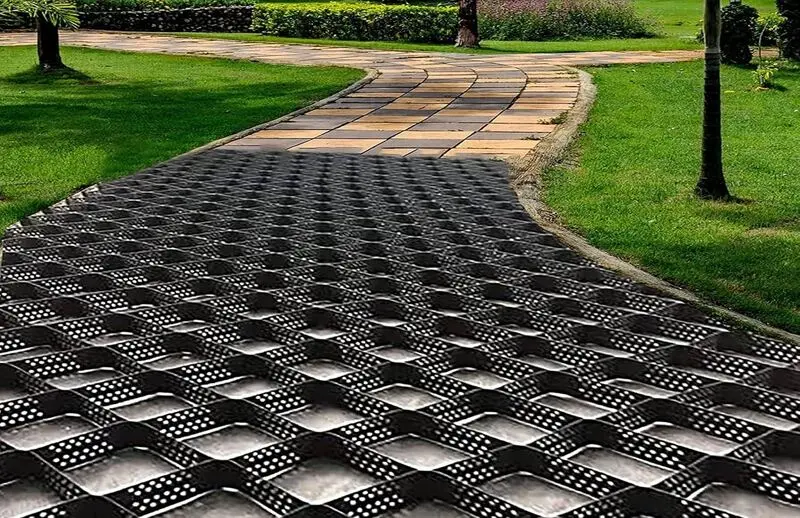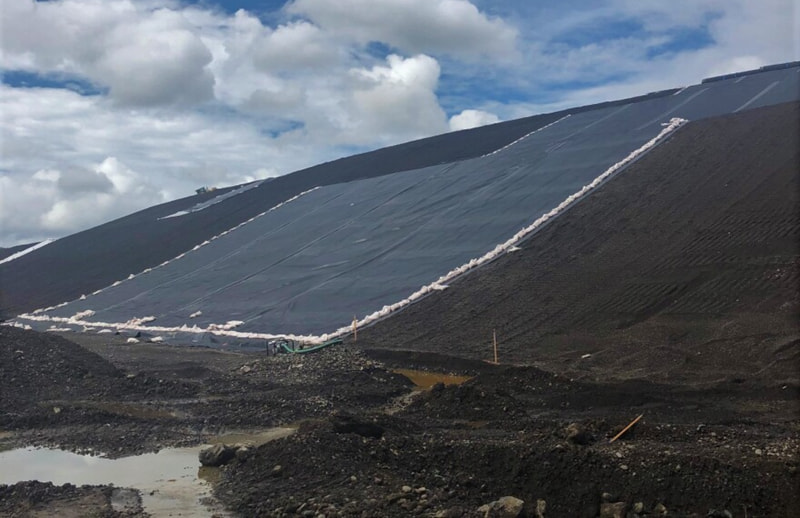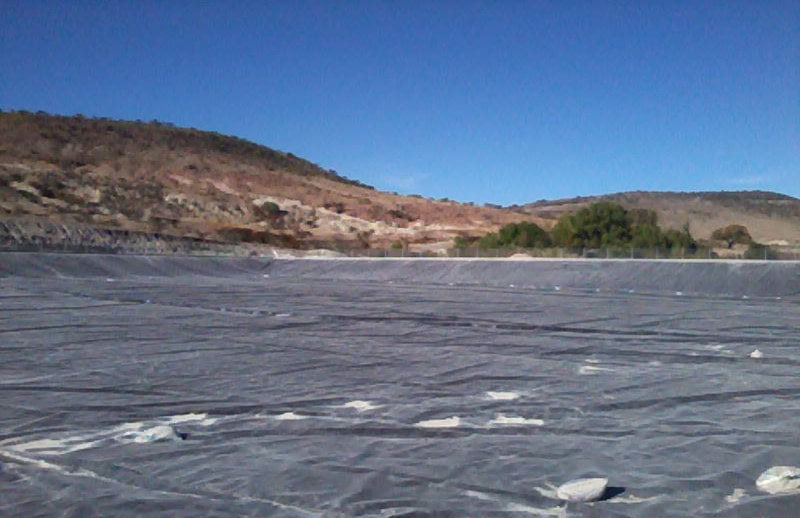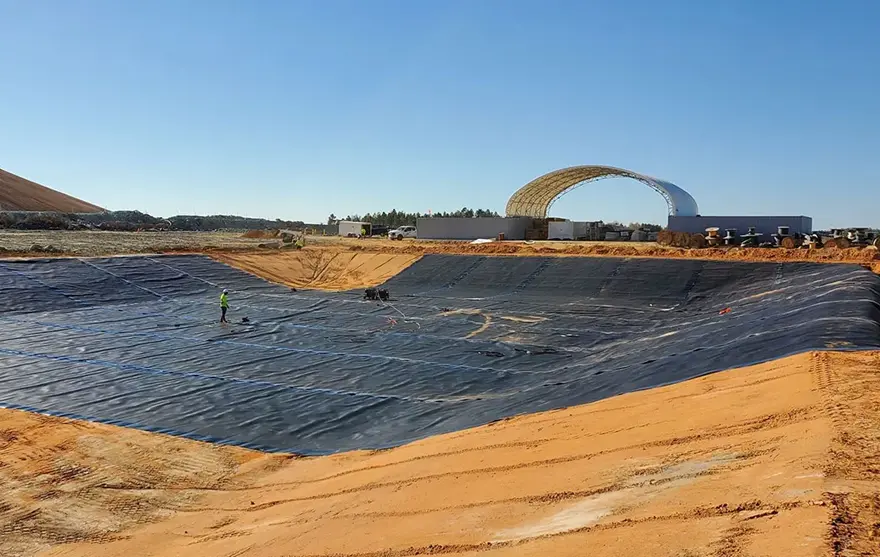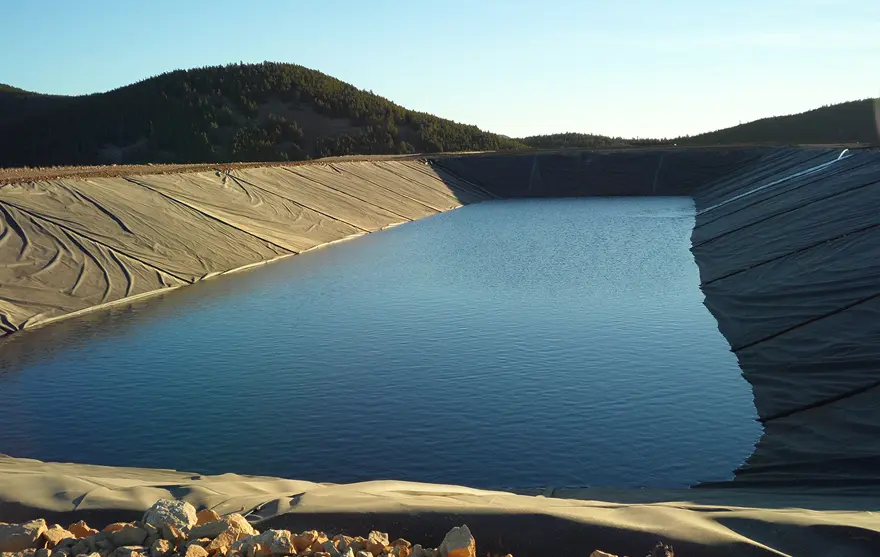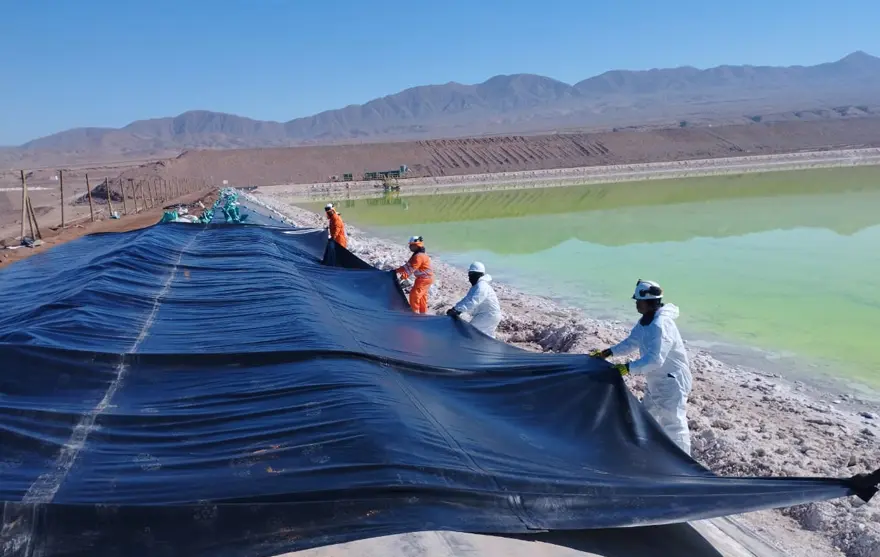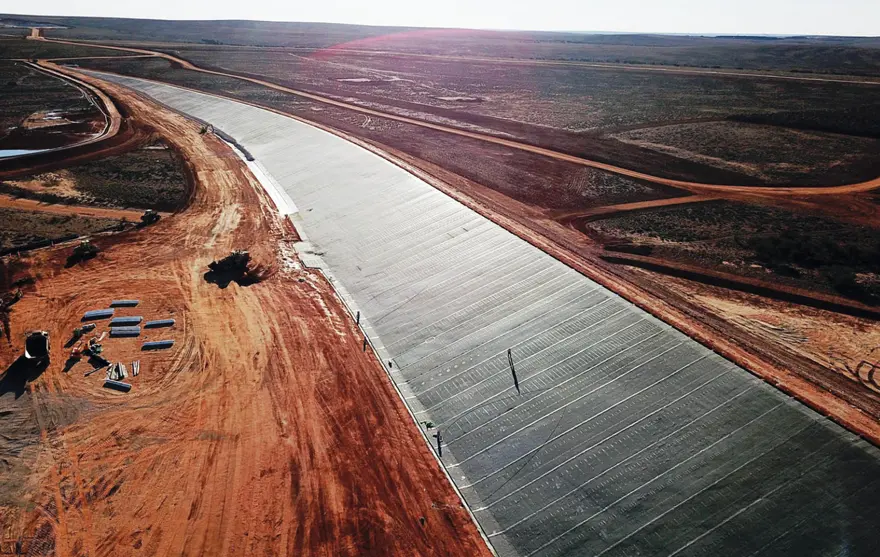
High-Density Polyethylene (HDPE) Geomembranes
Known for their high tensile strength, chemical resistance, and durability. HDPE geomembranes are widely used in landfills, mining, and water containment due to their low permeability and UV resistance. HDPE geomembranes are also resistant to UV radiation, making them ideal for exposed applications. HDPE geomembranes can provide an impermeable barrier that will withstand the harshest conditions.
HDPE geomembranes have a wide range of benefits that make them an ideal choice for many applications,Some of the advantages of HDPE geomembranes include:
Low-Density Polyethylene (LDPE) Geomembranes
Low-Density Polyethylene (LDPE) geomembranes are flexible, impermeable synthetic liners made from polyethylene resin with a branched molecular structure. They are widely used in containment applications where flexibility, elongation, and moderate chemical resistance are required. LDPE geomembranes are often used as a liner material. In agriculture, they are used for irrigation systems, crop covers, and livestock ponds. In horticulture, they are often used as container liners and mulch film. LDPE geomembranes are an essential part of many industries due to their versatile nature.
Linear Low-Density Polyethylene (LLDPE) Geomembranes
LLDPE geomembranes are one of the most commonly used types of geomembranes. They more flexible than HDPE, with better elongation properties,good puncture and chemical resistance and smooth or textured surfaces available. LLDPE geomembranes are widely used in secondary containment for fuel and chemicals, aquaculture and agricultural ponds and landfill caps. LLDPE geomembranes are an essential part of many industries due to their versatile nature.
Polyvinyl Chloride (PVC) Geomembranes
Polyvinyl Chloride (PVC) geomembranes are flexible, synthetic liners widely used for liquid containment and barrier applications. They are made from PVC resin blended with plasticizers, stabilizers, and additives to enhance durability, flexibility, and resistance to environmental factors.
PVC geomembranes are popular in water containment, environmental protection, and industrial applications due to their ease of installation, cost-effectiveness, and adaptability to various surfaces.
When selecting the right geomembrane for your construction project, it is important to consider the type of soil and groundwater conditions that will be present at the site. The four main types of geomembranes are HDPE, LDPE, LLDPE, and PVC membranes. Each type has its own advantages and disadvantages, so it is important to select the right one for your specific application.
